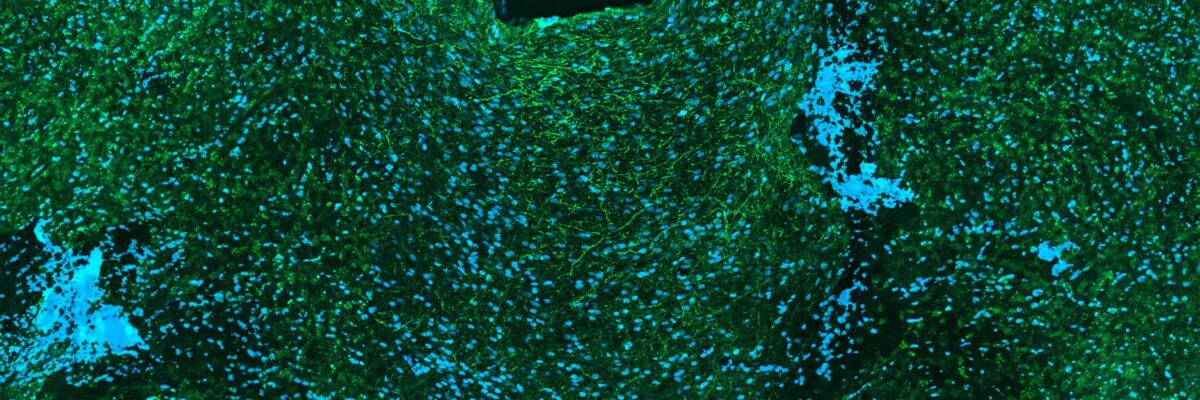
Brain Resilience Across the Lifespan
New discoveries in brain sciences have created unprecedented opportunities to develop strategies to enhance and preserve brain function. This cluster will bridge critical technical and knowledge gaps at Johns Hopkins University, nucleating the formation of strategic groups to study brain resilience across the entire human lifespan.
Our investment
This cluster’s investment in research includes: 6 Bloomberg Distinguished Professorships and 6 junior faculty positions. These faculty, along with the cluster leads, will collaborate together along with existing Johns Hopkins faculty on this important area of research.
These scientific leaders will define the cellular and circuit mechanisms of neuronal plasticity that underlie neuropsychiatric and neurodegenerative disorders; elucidate the genetics underlying brain cognitive development, decline and resilience; and develop novel tools for observing and manipulating brain function on broad spatial and temporal scales to improve brain resilience across the lifespan.
Interested in this cluster? Contact us to learn more.
The central goals of this cluster are to develop ways to employ brain plasticity to optimize learning throughout the lifespan, enhance performance in those who struggle with learning disorders, modulate emotional responses to trauma to treat disorders like depression, and develop therapies for memory disorders, such as Alzheimer’s disease.
To leverage new advances at the cell, circuit, and genome levels that provide opportunities to advance basic understanding in every phase of life and reveal new pathways towards treatment, this cluster will establish a unique collaborative research platform that melds basic and clinical neuroscience programs to apply the most advanced approaches to this challenge. The cluster aims to define the mechanisms that underlie positive outcomes across the lifespan and determine ways to harness these to improve health.
Cluster scholar backgrounds may include:
- Neuroengineering: Develop tools to better measure and manipulate brain function
- Mechanisms of Brain Plasticity: Discover the basic mechanisms of brain plasticity that underlie cognition and cognitive resilience
- Development of Cognition: Study the development of cognition and how stress and the environment impact cognition
- Critical Periods of Plasticity: Discover the mechanisms that define critical periods of learning across the lifespan
- Genetics of Cognition: Discover the genes that effect cognitive development and how mutations in these genes impact cognition
- Aging and Cognition: Study the impact of aging on cognitive decline and cognitive resilience
The JHU neuroscience community is uniquely positioned to address this cluster’s goals as it is one of the largest and most comprehensive in the world. This collaborative, innovation-focused community includes leaders in the field of brain plasticity and renowned departments of neuroscience, pathology, computer science, psychological and brain science, and cognitive science. The top-ranked departments of neurology and neurosurgery, psychiatry and behavioral sciences, biomedical engineering, and geriatrics provide a deep foundation to maximize the impact of new Bloomberg Distinguished Professors in key strategic areas. Research hubs of excellence include the Krieger Mind/Brain Institute, Kavli Neuroscience Discovery Institute, Brain Science Institute, Institute for Basic Biomedical Sciences, and Neurogenetics and Behavior Center. Strong connections among the basic biomedical sciences allow new knowledge to be translated swiftly into clinical applications at one of the nation’s most highly regarded medical institutions, in places such as the Precision Medicine Centers of Excellence in Alzheimer ’s disease and in Mood Disorders. Johns Hopkins Technology Ventures, the translational arm that supports academic-commercial partnerships, provides a means to rapidly develop, test, and deploy novel therapies. Recent increased interactions among neuroscientists, engineers, and computer scientists, catalyzed by the Kavli Neuroscience Discovery Institute, exploit machine learning and artificial intelligence to analyze large data sets.
With over 400 laboratories engaged in relevant research, neuroscience at Johns Hopkins has both breadth and depth. This cluster will add expertise in several key areas that are currently missing, including rapidly advancing new methods and techniques needed to accomplish this cluster’s goals. Cluster scholars will bridge existing pillars of investigation, allowing improved and seamless integration of research efforts across biology, engineering, and clinical sciences.
A wide range of core services are available to serve this cluster, including robust cellular imaging capabilities, transmission and Cryo-Electron Microscopy facilities, microfabrication and electronic design facilities staffed by experienced engineers, the highly successful transgenic Core with access to cutting-edge genetic strategies for generating models using novel CRISPR strategies, the extensive animal husbandry capabilities of JHU Animal Facilities, the Transcriptomic and Genetic Core Resources Facility with state-of-the art, high-throughput RNA and DNA sequencing, and the Mental Health Integrated Clinical and Research Enterprise with informatics tools to assist researchers with harvesting patient data.